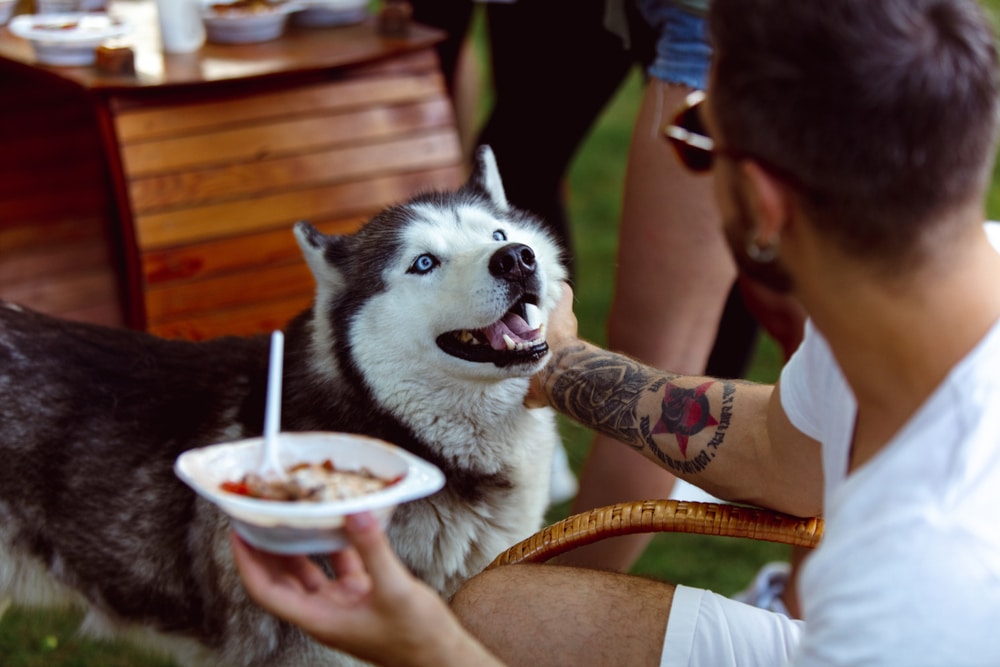Unfortunately, there are many ways dogs can get access to alcohol. That’s why we recommend always keeping any alcohol secured and out of reach of your dogs. However, if a dog did ingest alcohol, it’s normal to wonder, “How long does it take for a dog to metabolize alcohol?”
It usually takes around 12 to 24 hours after digestion for a dog to metabolize alcohol. The outcome usually depends on the dose and time of exposure. In general, if the owners react quickly and the dog receives proper veterinary care, the prognosis is very good and owners can expect recovery the next day.
Table of Contents
How Can Dogs Ingest Alcohol?

There are different ways for dogs to get alcohol poisoning. A lot of products we use contain different types of alcohol that your dog may find interesting to eat, and if left untreated, may have fatal consequences.
There are a few common alcohols your dog may come in contact with:
- Methyl alcohol (methanol) can be found in antifreeze, paint removers, or windshield cleaning solutions.
- Ethyl alcohol (ethanol) can be found in hand sanitizers, alcoholic beverages, rotting/ fermenting fruits, and dogs’ personal favorite-sour rising dough
- Isopropyl alcohol (isopropanol) can be found in household cleaning solutions, perfumes, and another dog favorite-antifreeze, as it has a sweet taste that attracts them.
What Does “Metabolize” Mean?
Many times we may read this word or maybe the vet uses it and we wonder what it means. The easiest way to explain this is: metabolize is a process where the body converts one substance into another.
How Long Does It Take For A Dog To Metabolize Alcohol?
Gastrointestinal tracts absorb all three alcohols when dogs ingest them orally. Dogs can also absorb the three alcohols through their skin. They are metabolized in the liver and their peak concentrations are reached within 1-2 hours, but that could be delayed if your dog has ingested a large amount of food.
Formaldehyde, acetaldehyde, and acetone are intermediate metabolites that dog bodies further metabolize to formic acid, acetic acid, and carbon dioxide, which they excrete through urine. Lungs can also excrete up to 50% of methanol.
What Are The Signs Of Alcohol Poisoning After A Dog Metabolizes It?
You may notice your pup not feeling well right after 15-30 minutes, but sometimes first symptoms present themselves around an hour after ingesting. Your dog may start to vomit, as alcohol irritates the stomach, as well as drool excessively. Because alcohol metabolites affect the central nervous system, your dog may experience disorientation, depression, difficulty moving normally, and tremors. Other signs are respiratory depression, diarrhea, collapse, and weakness.
What Can You Do To Help Your Dog?
Don’t panic! Call your vet and let them know you are coming as soon as possible. Alcohol poisoning is time sensitive, which means a proper medical professional should administer help as soon as possible.
Make sure you remember exactly what your dog ate or if possible bring the container with you. All of that information will help your vet determine exactly which alcohol your dog has ingested. Give thorough information about when the first signs started and how much you think your dog ingested. If you think your dog has come in contact with alcohol through the skin, then you should bathe them with mild shampoos but only after a consultation with your vet.
Do not try to make your dog vomit at your house! Vets should do this procedure because complications such as aspiration could occur, which could lead to aspiration pneumonia. In some cases, the procedure can damage the esophagus and may require a more serious medical approach.
Hospitalization
You also may need to hospitalize your dog, where additional examination and treatment will be provided. Medical professionals will apply IV fluids as well as drugs to protect the stomach.
Since dogs tend to be hypotensive (have lower body temperature), they may need to be quickly warmed up. Your vet, depending on the clinical signs, may also administer other drugs. In more severe cases, the dog may need stomach flushing, oxygen supplementation as well hemodialysis.
The prognosis usually depends on the amount of alcohol ingested, as well as how quickly the owner has reacted.
In most cases, you will be able to take your dog home for observation. In mild cases, the prognosis is almost always good. But in cases where the exposure is longer and problems such as aspiration pneumonia have emerged, the prognosis may be less optimistic. Poisoning with isopropyl alcohol is considered the most severe and in cases like this the outcome may be fatal.
Conclusion: How Long Does It Take For A Dog To Metabolize Alcohol?
So, how can you best protect your furry friend from alcohol poisoning? First of all, whenever you are throwing a party, make sure your guests are well aware your dog may have the desire to try some of the drinks they are having and this will not be fun in any way. Make sure there are no unattended glasses in places where your dog could reach them.
If you are making bread and have dough waiting to rise, make sure your dog does not counter-surf and get its paws in the goodies. If you are considering trying other topical flea and tick prevention that contain alcohol, please talk to your vet before you apply it.
And if by any chance, your dog does ingest and start to metabolize alcohol in any form, make sure you follow the advice given above and take your dog to the vet or emergency room as soon as possible.
So, how do you plan to put this information to use? Let us know your thoughts in the comments below!
